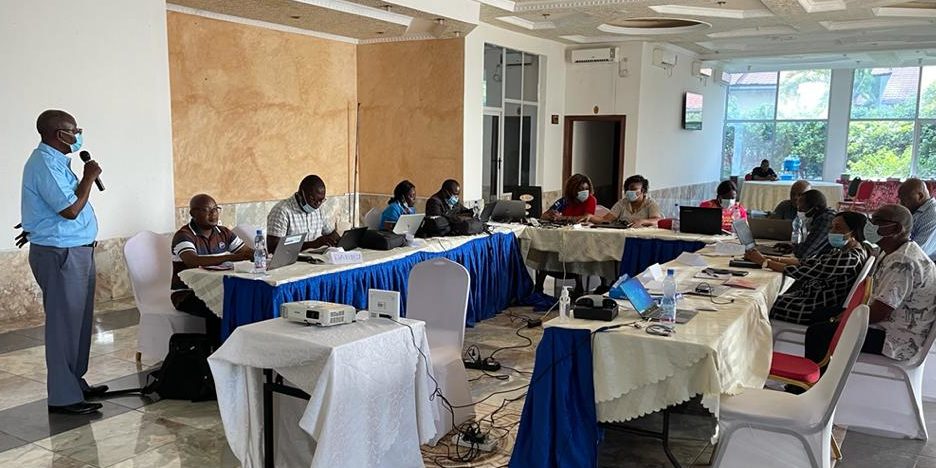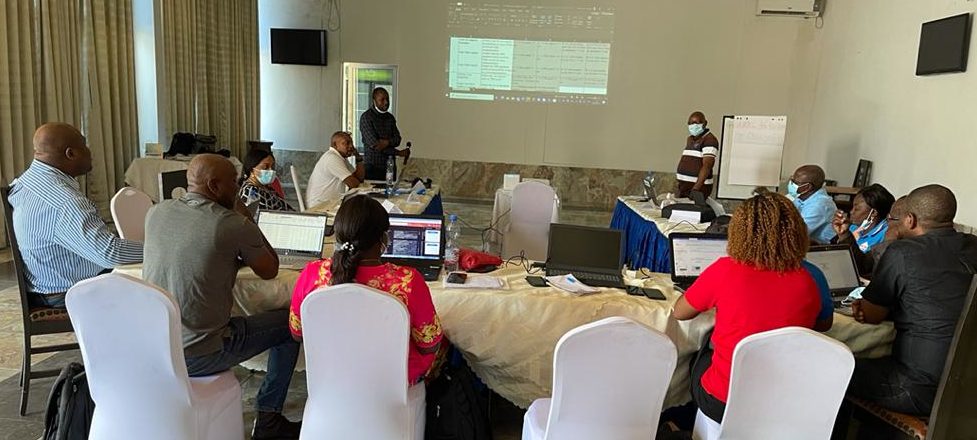Technical Working Group Uses Data to Identify Data Collection Tool Stockouts and Find a Solution in DRC

A culture of data-driven decision making is facilitated by the demand for data and the engagement of data users. In many countries supported by the U.S. President’s Malaria Initiative (PMI), one way of engaging stakeholders is through technical working groups (TWG), which are formal groups of stakeholders that meet regularly to collaborate on shared interests. PMI Measure Malaria (PMM) supports country national malaria control programs (NMCPs) to lead and convene TWGs focused on strengthening health information systems (HIS) and malaria surveillance, monitoring, and evaluation (SME). TWGs convene at the national and subnational level and aim to bring HIS and malaria stakeholders together to coordinate and harmonize guidance for malaria SME activities.
In the Democratic Republic of the Congo (DRC), PMI Measure Malaria (PMM) supports the NMCP and the Division of Provincial Health (DPS) to convene monitoring and evaluation technical working groups (METWGs) on a quarterly basis at the national level and in all nine PMI-supported provinces. At the provincial level, METWGs enable the NMCP and DPS to oversee and coordinate provincial-level activities among partners, improve the SME of malaria control, and facilitate data quality improvement and data use. Participants include PMM, provincial monitoring and evaluation unit heads, provincial heads of office from the NMCP, and various implementing partners at the provincial level.

During a quarterly METWG meeting in the Lomami province in December 2020, findings from a recent malaria routine data quality assessment conducted by the DPS at select health zones were discussed, including a shortage of current data collection tools used for reporting data into the DHIS2 in multiple health zones that were visited. As a result of this shortage, health facility staff were using outdated, incomplete, or non-standardized tools, which negatively affected the quality of routine data in the DHIS2. TWG members decided that the DPS, PMM, and the implementing partner PROSANI would collaborate to identify a solution for financing the printing of up-to-date data collection tools.
DPS staff worked with PMM’s provincial SME advisors to update the national health pyramid, which documents the number and location of health facilities, to allow provinces to better identify the real need for data collection and reporting tools in their respective health zones throughout the nine PMI-supported provinces, including Lomami. It was decided that the DPS would be able to coordinate the printing and distribution of a one-year supply of data collection and reporting tools for all nine PMI-supported provinces with financial support from PMM, which was announced at the subsequent METWG meeting in January 2021.
The Lomami Province METWG provided a mechanism for the NMCP, the DPS, and other stakeholders to identify a challenge based on data quality assessment findings while also empowering these stakeholders to find an appropriate solution that will improve access to data reporting tools and facilitate more accurate and complete reporting of routine malaria data.
This is the first story in a series focusing on the data use cycle to strengthen malaria programs. Read more from the series:
Celebrating 15 Years of PMI: Focusing on the Data Use Cycle to Strengthen Malaria Programs